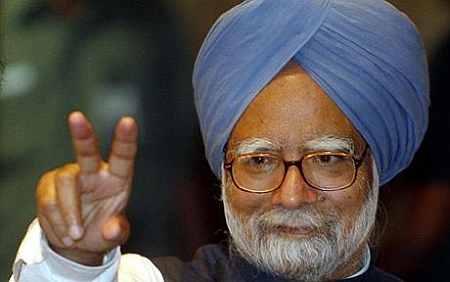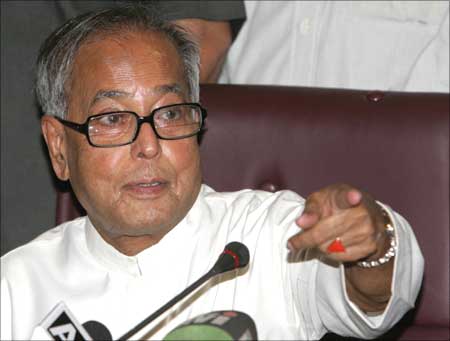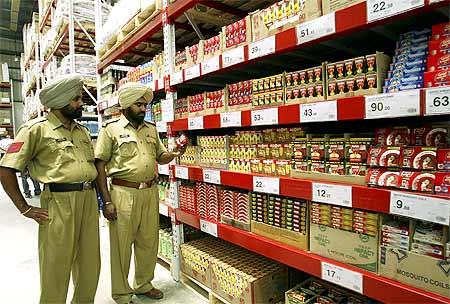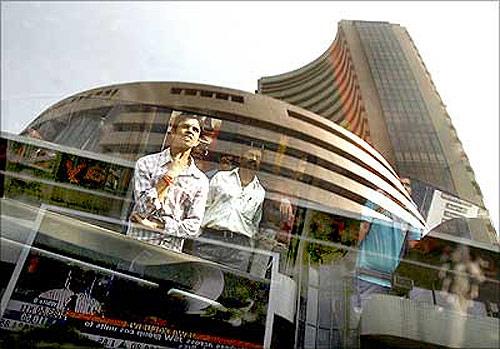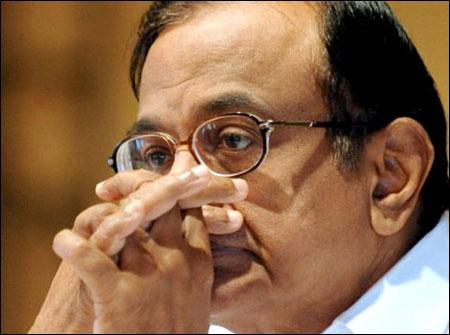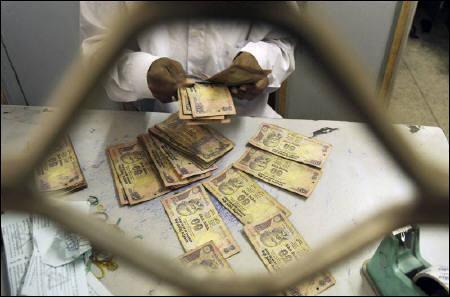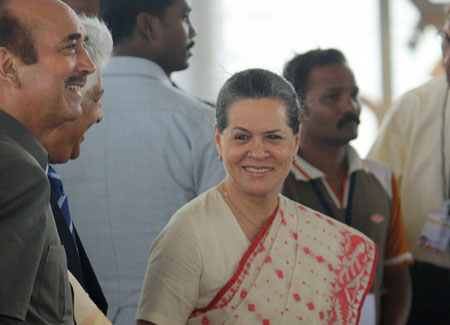 | « Back to article | Print this article |
UPA's swing: From policy paralysis to economic reforms
The government's frenetic pace of activity resulting in a series of economic policy initiatives in the last two months has taken the opposition political parties by surprise.
The Manmohan Singh government looks revitalised all of a sudden, showing greater purpose and determination. This was not so earlier. How did this change take place?
To find an answer, it would be necessary to recall what happened soon after the United Progressive Alliance (UPA) formed its second government at the Centre in May 2009.
Click NEXT to read more...
UPA's swing: From policy paralysis to economic reforms
The 2G telecom spectrum scam engulfed the government in a crisis, almost within a few months of its formation. Since then the government has been under relentless attack from the opposition political parties for various corruption scandals that surfaced at regular intervals.
The government's defence was weak and it always looked like a one-sided match.
Worse, the UPA leadership went into a shell and dilly-dallied on introducing the much-needed economic policy correctives to halt the Indian economy's slide and the government's fiscal deterioration.
Click NEXT to read more...
UPA's swing: From policy paralysis to economic reforms
Legislative business during several sessions of Parliament moved either at a slow pace or had to be completely abandoned because of the opposition political parties' disruptive tactics.
All that changed after Pranab Mukherjee moved to Rashtrapati Bhavan as the 13th president of India by the last week of July.
In the last 10 weeks or so, the government has taken a series of steps on the economic policy front.
Click NEXT to read more...
UPA's swing: From policy paralysis to economic reforms
It increased diesel prices, capped subsidy on cooking gas cylinders, allowed foreign direct investment (FDI) in multi-brand retail, permitted foreign airlines to own 49 per cent stake in domestic civil aviation companies, approved the 12th Plan and accorded Cabinet clearance to five significant legislations - in a bid to raise foreign investment in insurance to 49 per cent, confer statutory status on the pension regulatory body, make the commodities regulator independent with formal statutory backing, introduce a new companies law and empower the Competition Commission of India to decide on all voluntary mergers and acquisitions.
In addition, there were positive signals aplenty from the finance ministry, under the charge of the new Finance Minister, Palaniappan Chidambaram.
Click NEXT to read more...
UPA's swing: From policy paralysis to economic reforms
There were clear indications that the retrospective amendments to tax laws, introduced in the 2012 Budget would be reviewed and the General Anti-Avoidance Rules (GAAR) for taxation matters would be postponed by three years.
The government was seen pushing for new bank licences and a reduction in interest rates. Plans to set up a national investment board to expedite clearance of projects stuck with ministries were formulated.
The markets read these signals positively. The stock market's benchmark indices went up steadily in this period and the Indian rupee recovered against the US dollar.
Click NEXT to read more...
UPA's swing: From policy paralysis to economic reforms
From a government that was given up as terminally suffering from policy paralysis, it is now busy taking decisions to bring the economy back on the rails.
Two factors helped the government change the mood and expedite action.
One, the government set up a large number of expert committees with the brief that they should submit their reports within a few weeks.
Click NEXT to read more...
UPA's swing: From policy paralysis to economic reforms
Thus, Parthasarathi Shome was asked to head a committee to recommend changes in GAAR, N Rangachary was asked to look at taxation rules including the retrospective amendments in tax laws and Vijay L Kelkar was given the job of presenting a report on how the government could consolidate its finances.
The findings of some of these reports are not yet public, but the government has made its intentions clear through the formation of these committees.
Coinciding with these committees, the committee on infrastructure financing submitted its findings to the government, which, too, were made public.
One of the recommendations suggested that FDI in telecom companies should be raised from 74 per cent to 100 per cent.
Click NEXT to read more...
UPA's swing: From policy paralysis to economic reforms
Coming as it did just weeks before the scheduled start of the 2G spectrum auctions, the recommendation removing the FDI cap in this sector has only brightened the chances of a successful round of spectrum sale with higher revenues.
The second factor at play is a proactive finance minister who is now more engaged with all stakeholders in the system than his predecessor. Chidambaram has left nobody in doubt on what he wants as the finance minister.
There is clarity on what he wants: more disinvestment, a stronger rupee, lower interest rates, reduced fiscal deficit, early launch of the goods and services tax regime, revamping the direct taxes code and raising revenue through tax rationalisation.
Click NEXT to read more...
UPA's swing: From policy paralysis to economic reforms
The various committee reports have helped the government's leaders to communicate more effectively even within the Congress party in explaining why fiscal deficit has to be cut by slashing subsidies and why it is necessary to revive the investment sentiment in the country.
It is a combination of both - experts arguing for policy change and a finance minister who passionately argues in favour of those changes and their implementation.
Click NEXT to read more...
UPA's swing: From policy paralysis to economic reforms
It is ironic, therefore, that just when the government thought it had managed to sidestep the issues of corruption through a series of purposive policy action to improve the economy, the Congress leadership is now once again engulfed with another controversy.
And this time it is not the government that is directly under attack, but the Congress high command.
